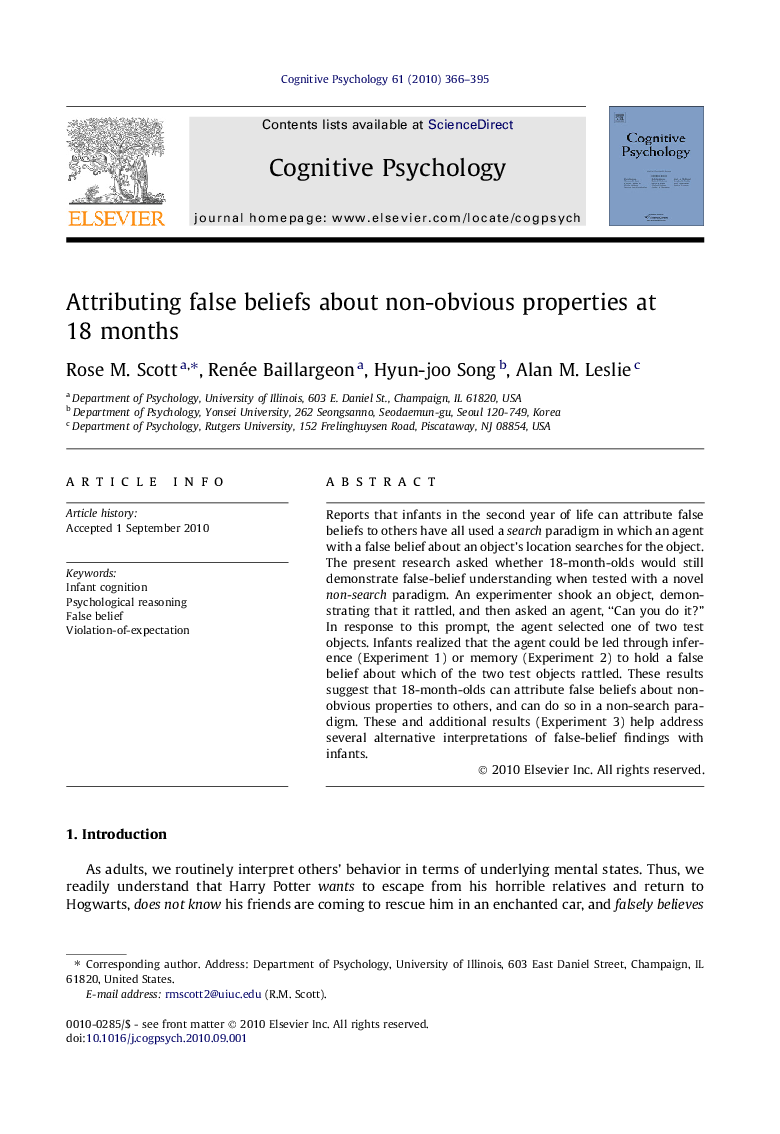| Article ID | Journal | Published Year | Pages | File Type |
|---|---|---|---|---|
| 916968 | Cognitive Psychology | 2010 | 30 Pages |
Reports that infants in the second year of life can attribute false beliefs to others have all used a search paradigm in which an agent with a false belief about an object’s location searches for the object. The present research asked whether 18-month-olds would still demonstrate false-belief understanding when tested with a novel non-search paradigm. An experimenter shook an object, demonstrating that it rattled, and then asked an agent, “Can you do it?” In response to this prompt, the agent selected one of two test objects. Infants realized that the agent could be led through inference (Experiment 1) or memory (Experiment 2) to hold a false belief about which of the two test objects rattled. These results suggest that 18-month-olds can attribute false beliefs about non-obvious properties to others, and can do so in a non-search paradigm. These and additional results (Experiment 3) help address several alternative interpretations of false-belief findings with infants.
